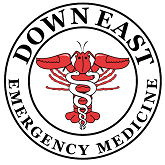Ludwig's Angina- more than a toothache
/Ludwig’s Angina is an uncommon but dangerous floor of the mouth infection. It is important to recognize and manage it appropriately. For this reason we present images and video of a case of Ludwig’s Angina… and sprinkle in nuggets of wisdom regarding source, presentation, complications, and management.
Read More



















